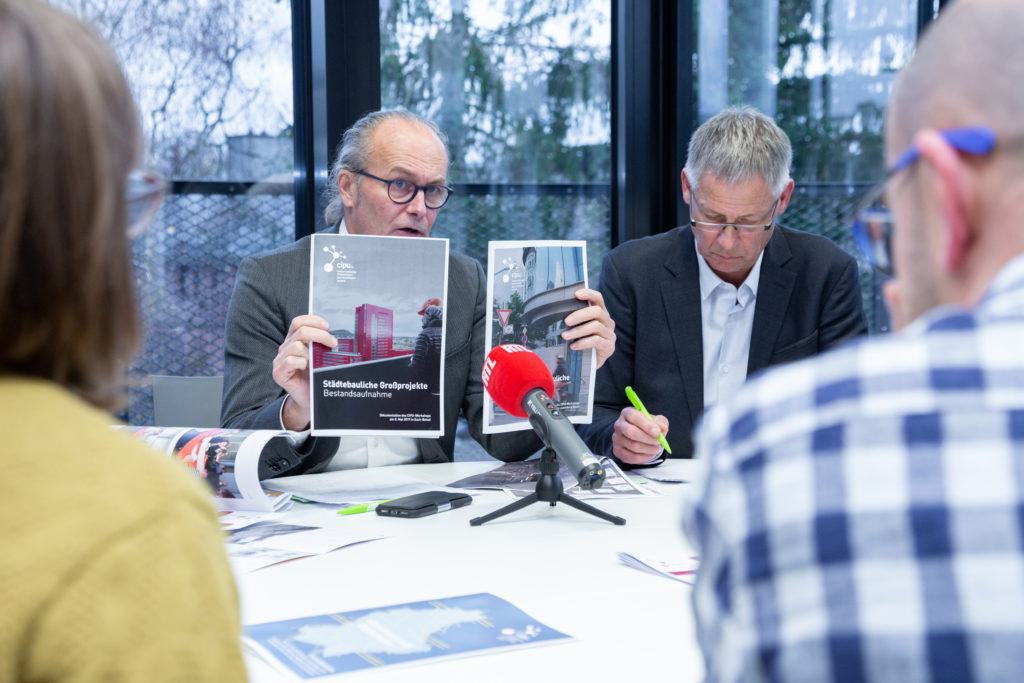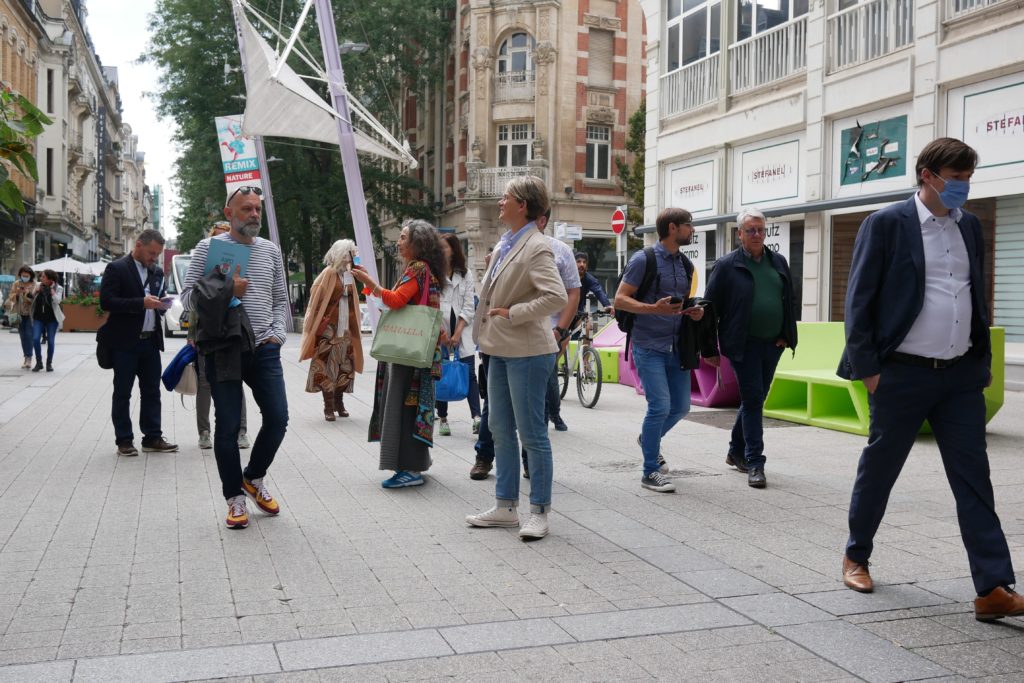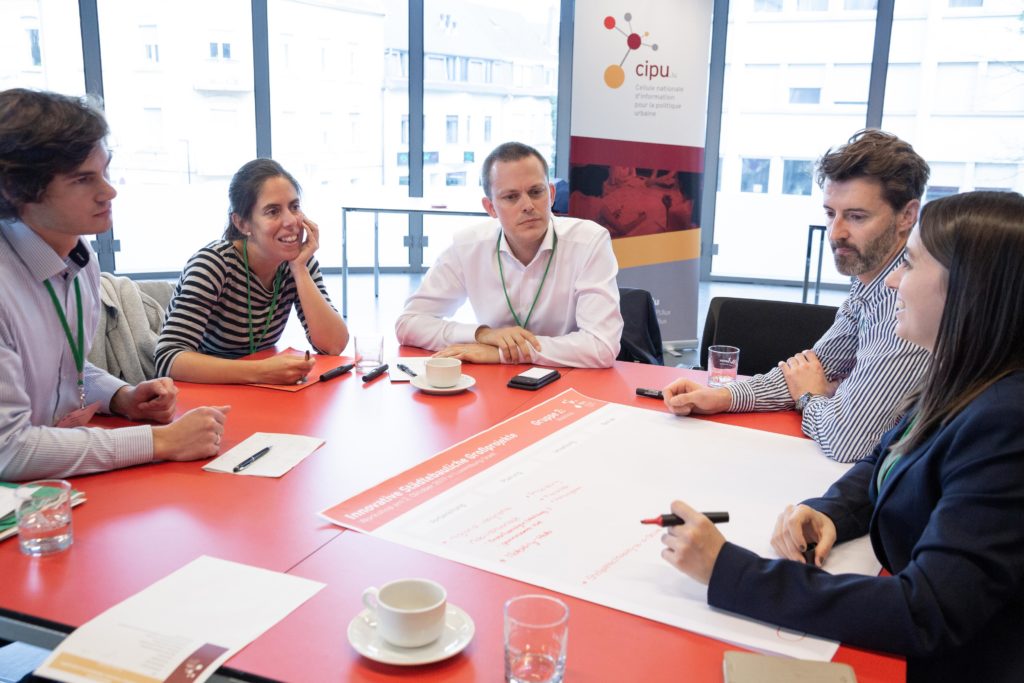The “National Platform for Urban Policy » (CIPU) enables cooperation between national, regional/intermunicipal and local level and initiates the debate around urban planning and development in Luxembourg. In addition to that, it raises awareness in the international context and informs about ongoing urban spatial planning trends and relevant topics in Luxembourg.
Aim
CIPU works on two levels: the European and the national level. While increasing awareness about spatial planning in Luxembourg in the international context, the platform simultaneously supports the cooperation between the local and the national level in Luxembourg. The central objective of CIPU has always been to provide a platform for exchange between the various urban policies and a multitude of municipal, national and European actors and enable cooperation – an objective which remains valid today. However, the practical topics have evolved across the years. The convention applies a focused and cooperative approach for its implementation.
Partnership
CIPU is based on an agreement between the Luxembourg Ministry of Energy and Spatial Planning, the Ministry of Housing and Ministry of Home Affairs as well as the cities of Luxembourg, Esch-sur-Alzette, Differdange and Dudelange. These partners constitute the core network of the CIPU. It is managed and organised by the CIPU which is run by Zeyen+Baumann in cooperation with Spatial Foresight. Depending on the subject, the platform’s activities are implemented in close cooperation with external partners, e.g. the Klima-Agence.

Genesis
CIPU was developed in 2010 to support the integration of the recommendations for urban development from the European level in Luxembourgish spatial planning policy. In Luxembourg, the debate on spatial development since the beginning of the 2000s has been marked by the adoption of the second Master Programme for Spatial Planning (PDAT) in 2003, the Integrated Transport and Territorial Development Concept (IVL) in 2004 and the revision of the laws on urban (2004) and spatial planning (2013, 2018). CIPU initially aimed at transposing the objectives from the “Leipzig Charter on Sustainable European Cities” from 2007 at the national level while involving Luxembourgish municipalities in the implementation of a national urban policy, and – at the same time – considering the objectives of the PDAT which has a guiding function for national and local authorities.

During 2017-2021, a thematic focus was set for each year: In 2017/2018 the activities were focused on affordable housing. The year 2019 revolved around the topic of major urban development projects, the years 2020/2021 focused on both climate change adaptation in urban development and the revitalisation of inner cities. Furthermore, in the course of 2021, CIPU addressed the changing framework conditions caused by the COVID-19 pandemic and work was carried out under the overarching title « City in Transition ». In addition to workshops and events, which were dedicated to concrete issues and enabled a direct exchange between the participants, the results of the discussions were processed in numerous publications for Luxembourgish and European planners. These were produced in close cooperation with the partners involved in the CIPU and the actors participating in the workshops. The CIPU documentation is thus a significant output that actively contributes to informing and developing the expertise of Luxembourgish planners. In order to finalise this phase of CIPU and to provide space for other important topics in the future, the « Journée de la Politique Urbaine » was organised with Luxembourgish planners and experts in January 2022. In a world café-like setting, the future perspectives for a “City in Transition” were elaborated as a summarizing statement of the CIPU 2020/2021.

Outlook
The main topics and activities for the next two years are described in an ambitious programme. It was developed in close cooperation with all involved partners by means of in-depth discussions about relevant topics. This action programme will cover the following topics:
- multifunctional urban areas
- energy concepts for large-scale urban projects
- climate resilience and climate change impact in urban development
- building cooperatives and alternative models for housing and working
Activities for 2023 were launched in May with the online lecture series (colloque) consisting of four presentations on energy concepts in the district “Roud Lëns”, the projects “NeiSchmelz” and “Wunne mat der Wooltz” as well as the energetic renovation of existing buildings in Differdange and a low-emission district in Strasbourg. Further steps in the implementation include interactive thematic workshops, an excursion and a concluding conference on the second thematic focus of multifunctional urban areas. For external communication, and awareness-raising, CIPU will inform about ongoing activities, publications and provide a collection of funding opportunities for municipalities on its website and social media. Furthermore, this blog will inform continuously about ongoing urban planning and development trends and projects in Luxembourg – so stay tuned during the next months.
Contact
Cellule nationale d’Information pour la Politique Urbaine (CIPU): cipu@zeyenbaumann.lu
References
CIPU website (German and French): https://site.cipu.lu/
CIPU blog (English): https://blog.cipu.lu/blog/
Conclusions of CIPU 2020/2021 (German): https://site.cipu.lu/images/2022-03_publications2022/CIPU_Conclusions%202020-2021_2022-03-30.pdf





